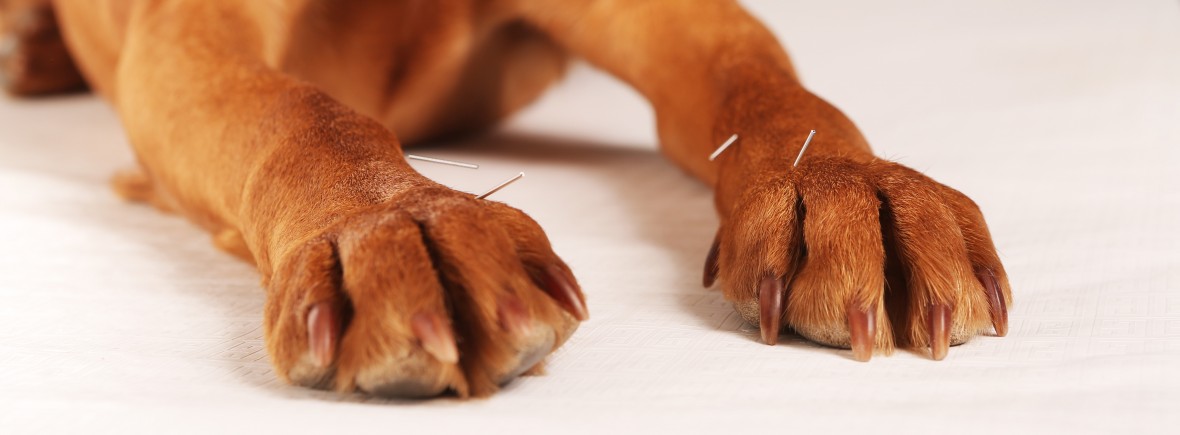Acupuncture
Veterinary acupuncture has many possible uses but here are just a few:
- Pain management when dealing with osteoarthritis, muscular and tendon injuries, hip dysplasia, post-operative pain and pain associated with cancer…
- Nervous system stimulation, for intervertebral disc disease as an example.
- Gastro-intestinal disorders such as constipation, diarrhea, vomiting…
- Disorders of the immune system such as allergies, feline asthma…
- Urinary incontinence
- Certain behavioural conditions
- Veterinary acupuncture can sometimes be used as an alternative when certain drugs or medications are contra-indicated or if the patient experiences undesirable side effects to certain drugs or médications.
How can we explain what happens during an acupuncture treatment?
According to Traditional Chinese Veterinary Medicine, a form of energy we call « Qi » circulates throughout the body along meridians. Disease is the result of an imbalance of this energy in the body. The majority of acupuncture points are located along these meridians.
An acupuncture point is a hole or a depression where there is low electrical resistance and high electrical conductivity at the skin level. More deeply, there is a high concentration of nerve endings, arterioles, lymphatic vessels and mastocytes. Stimulating an acupuncture point will cause a local reaction that will spread along the nervous system and a series of biochemical changes will follow, including the release in circulation of neurotransmitters such as endorphins which are endogenous opioids. These endogenous opioids have many physiological functions. For instance, they play an important role in pain management. Stimulating an acupuncture point has many other effects such as immune system regulation and nervous system stimulation.
An additional tool
Veterinary acupuncture is simply an extra tool in a veterinarian’s tool box. The ultimate goal is always to help our patients in the best possible way and improve their quality of life. When it is done by a certified veterinarian, it is safe and usually very well tolerated by our animals.
